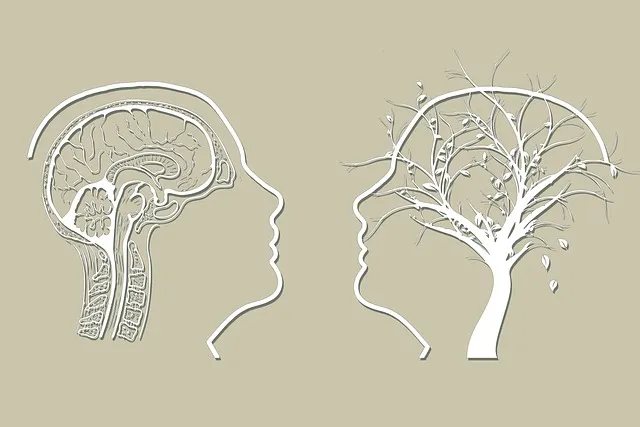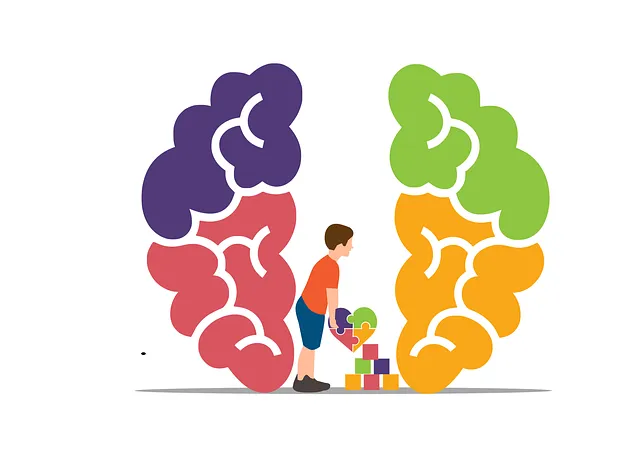Kaiser Permanente behavioral health phone number Boulder promotes emotional intelligence (EI) as a cultivable skill through compassion cultivation, coaching, and resilience exercises. Their holistic approach emphasizes self-awareness, self-care routines like meditation and journaling, enhancing decision-making, relationships, and overall well-being. Programs focus on active listening and effective communication for better conflict management, community building, and mental wellness in today's fast-paced world.
Emotional intelligence (EQ) is a powerful tool for personal growth and professional success. In today’s fast-paced world, understanding and managing emotions effectively is crucial for navigating relationships and challenges. This article explores strategies for building EQ, drawing insights from the successful approach of Kaiser Permanente and leveraging resources like the Kaiser Permanente behavioral health phone number in Boulder. We’ll delve into self-awareness, social awareness, empathy, active listening, and communication skills to enhance your emotional intelligence.
- Understanding Emotional Intelligence: The Kaiser Permanente Approach
- Developing Self-Awareness: Boulder's Behavioral Health Phone Number
- Enhancing Social Awareness and Empathy
- Practicing Active Listening and Effective Communication
Understanding Emotional Intelligence: The Kaiser Permanente Approach

Emotional intelligence (EI) is a crucial aspect of overall well-being, and organizations like Kaiser Permanente recognize its value. The Kaiser Permanente behavioral health phone number in Boulder serves as a gateway to their comprehensive approach to EI development. They emphasize that emotional intelligence isn’t just about understanding emotions; it’s a skill that can be cultivated through specific practices.
Their program incorporates compassion cultivation practices, mental wellness coaching, and resilience-building exercises. By focusing on these areas, Kaiser Permanente aims to empower individuals to navigate life’s challenges with greater equanimity and empathy. This holistic approach not only benefits personal relationships but also contributes to a more productive and supportive work environment.
Developing Self-Awareness: Boulder's Behavioral Health Phone Number

Developing self-awareness is a cornerstone of emotional intelligence and mental well-being. It involves understanding your emotions, thoughts, and their impact on your behavior. For those seeking support in Boulder, the Kaiser Permanente behavioral health phone number offers accessible resources. By engaging with professionals, individuals can learn effective self-awareness exercises to enhance their emotional intelligence. These practices empower them to recognize and manage their emotions, leading to better decision-making and more fulfilling relationships.
Integrating self-care routines into daily life is another vital aspect of emotional intelligence building. This involves prioritizing mental health through activities like meditation, journaling, or engaging in hobbies that promote relaxation and stress reduction. By adopting a proactive approach to self-care, individuals can prevent depression and cultivate resilience. The Kaiser Permanente behavioral health phone number in Boulder provides guidance for tailoring self-care routines to individual needs, fostering a healthier and more balanced lifestyle.
Enhancing Social Awareness and Empathy

Emotional intelligence (EI) is a powerful tool for enhancing social connections and fostering empathy, as evidenced by successful programs like those offered by Kaiser Permanente behavioral health phone numbers in Boulder. By promoting self-care routine development for better mental health, individuals become more attuned to their own emotions and those of others. This heightened self-awareness allows people to navigate social situations with greater sensitivity and understanding, ultimately strengthening relationships.
Mental health education programs designed to improve EI teach individuals how to recognize and respond to emotional cues in themselves and others. These skills are crucial for managing conflicts constructively, building supportive communities, and promoting mental wellness. Through engaging workshops and interactive exercises, participants learn to cultivate empathy, a key component of EI that enables them to understand and share the feelings of others. Such initiatives contribute to creating a more compassionate and connected society.
Practicing Active Listening and Effective Communication

In today’s fast-paced world, fostering effective communication and active listening is more crucial than ever, especially in promoting emotional well-being. This is a skill set that can be cultivated, and one organization leading the way is Kaiser Permanente behavioral health phone number Boulder. They offer valuable resources and programs focused on enhancing these essential interpersonal skills.
By practicing active listening, individuals can create deeper connections and understand others more profoundly. It involves giving your full attention to the speaker, paraphrasing their thoughts, and asking clarifying questions. This simple yet powerful technique can significantly improve relationships, whether in personal or professional settings. Additionally, effective communication goes hand in hand with emotional intelligence; it ensures that messages are conveyed clearly and respectfully, minimizing misunderstandings and conflicts. Mental health professionals can benefit from these practices, as they enhance their risk assessment capabilities and foster a more compassionate environment through techniques like compassion cultivation.
Emotional intelligence is a powerful tool for personal growth and improved relationships. By understanding and adopting strategies from the Kaiser Permanente approach, individuals can enhance their self-awareness and navigate life’s challenges more effectively. The Kaiser Permanente behavioral health phone number in Boulder serves as a valuable resource, offering guidance and support for those seeking to build emotional resilience. Through practicing active listening, effective communication, and fostering empathy, people can create deeper connections and lead more fulfilling lives.






